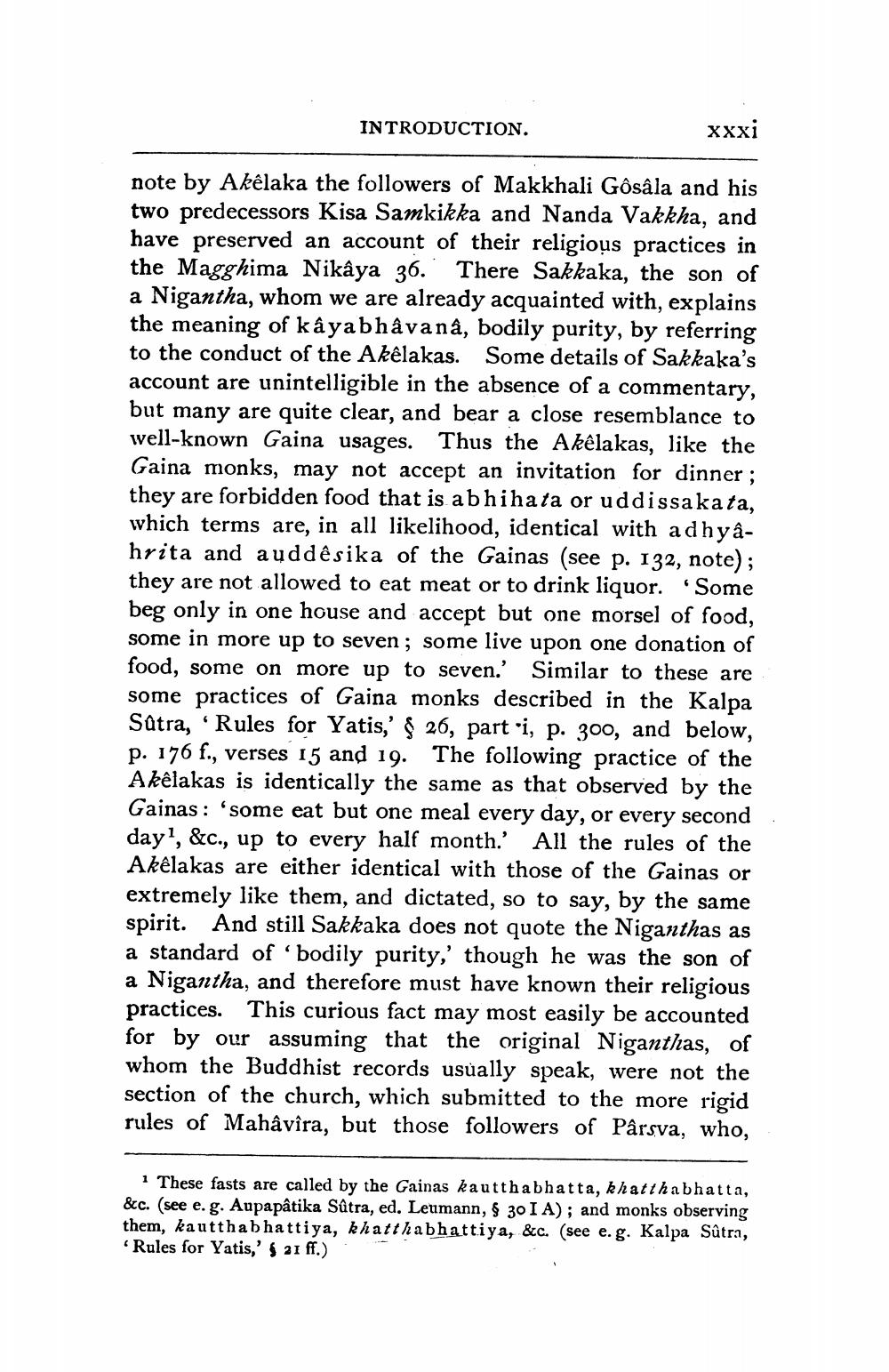________________
INTRODUCTION.
xxxi
note by Akêlaka the followers of Makkhali Gôsâla and his two predecessors Kisa Samkikka and Nanda Vakkha, and have preserved an account of their religious practices in the Magghima Nikâya 36. There Sakkaka, the son of a Nigantha, whom we are already acquainted with, explains the meaning of kâyabhavana, bodily purity, by referring to the conduct of the Akêlakas. Some details of Sakkaka's account are unintelligible in the absence of a commentary, but many are quite clear, and bear a close resemblance to well-known Gaina usages. Thus the Akêlakas, like the Gaina monks, may not accept an invitation for dinner; they are forbidden food that is abhihata or uddissakata, which terms are, in all likelihood, identical with a dhyâhrita and auddêsika of the Gainas (see p. 132, note); they are not allowed to eat meat or to drink liquor. 'Some beg only in one house and accept but one morsel of food, some in more up to seven; some live upon one donation of food, some on more up to seven. Similar to these are some practices of Gaina monks described in the Kalpa Sætra, 'Rules for Yatis,' § 26, part 'i, p. 300, and below, p. 176 f., verses 15 and 19. The following practice of the A kêlakas is identically the same as that observed by the Gainas: 'some eat but one meal every day, or every second day!, &c., up to every half month. All the rules of the Akêlakas are either identical with those of the Gainas or extremely like them, and dictated, so to say, by the same spirit. And still Sakkaka does not quote the Niganthas as a standard of 'bodily purity, though he was the son of a Nigantha, and therefore must have known their religious practices. This curious fact may most easily be accounted for by our assuming that the original Niganthas, of whom the Buddhist records usually speak, were not the section of the church, which submitted to the more rigid rules of Mahâvîra, but those followers of Pârsva, who,
1 These fasts are called by the Gainas kautthabhatta, khatthabhatta, &c. (see e. g. Aupapâtika Sûtra, ed. Leumann, $ 30 I A); and monks observing them, kautthabhattiya, khatthabhattiya, &c. (see e.g. Kalpa Sûtra, *Rules for Yatis,'$ 21 ff.)




